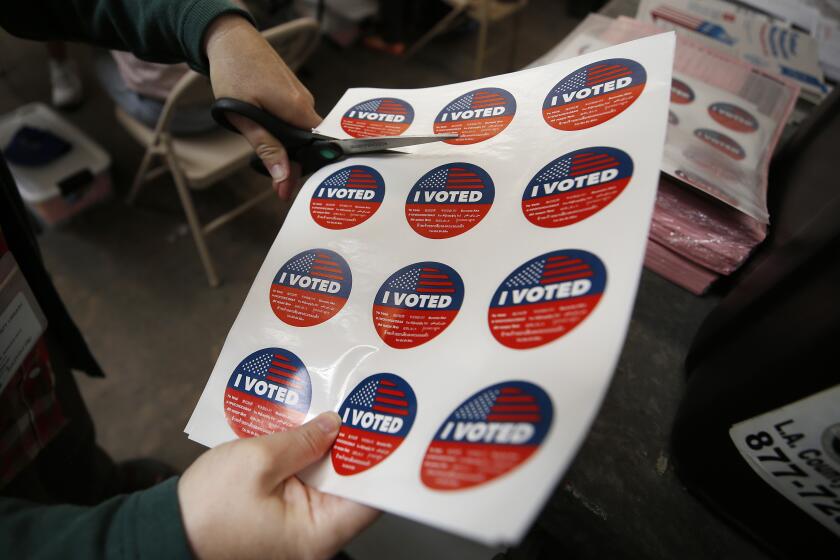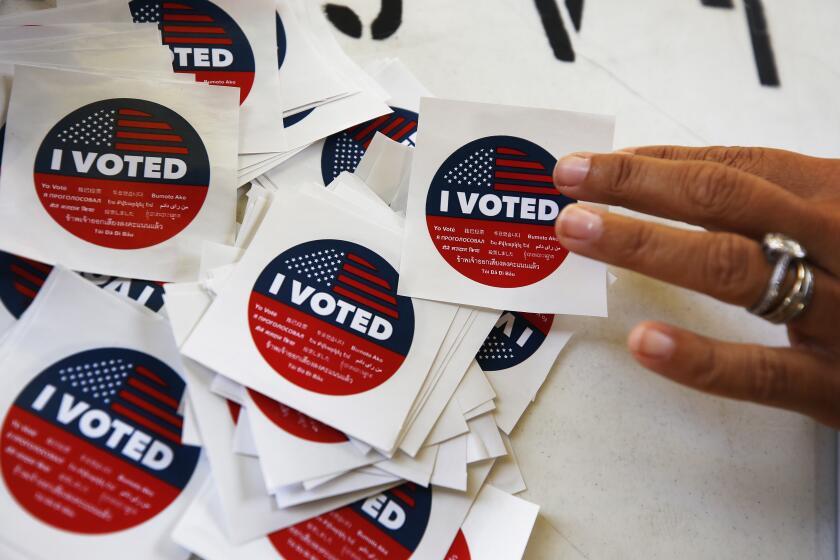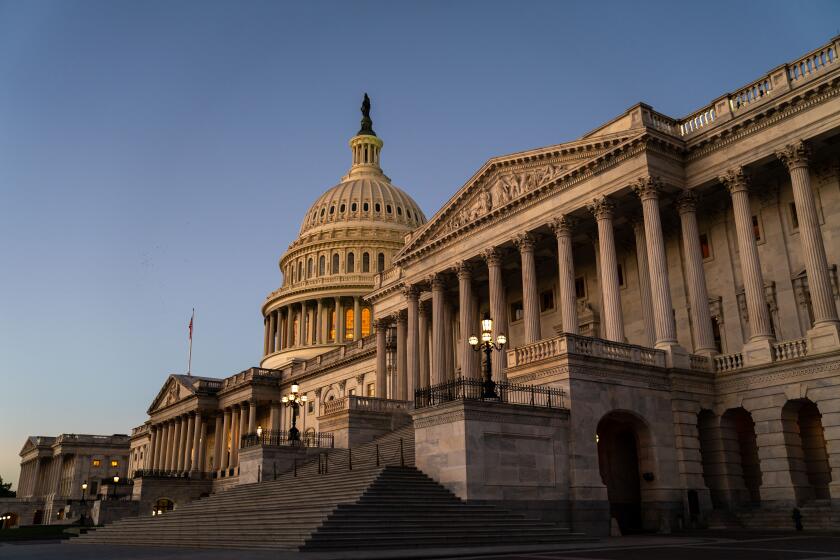Meet the young, ambitious Black man who wants Devin Nunes’ old House seat
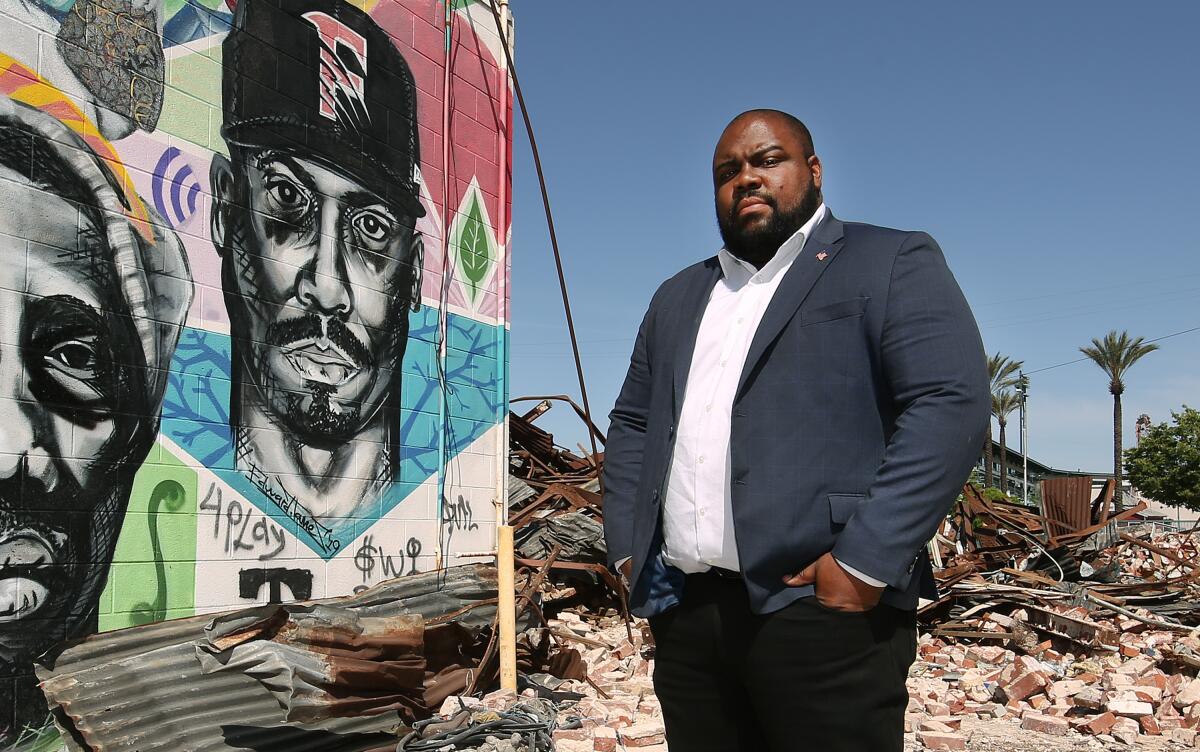
FRESNO — Brian Bobbitt heard whispers in the fall about a water resource manager entering the race to represent the 22nd Congressional District.
It piqued his interest because it meant a fresh face with key expertise for Central Valley politics. So he cold-called Lourin Hubbard and invited him to lunch at Toledo’s Mexican Restaurant.
After going through some questions, Bobbitt asked the obvious: “Do you realize you’re Black? A Black person has never ran here!”
Hubbard stared at Bobbitt before slowly nodding his head. “Well, that’s because I’ve never ran here.”
California’s 2022 primary election is Tuesday. Here’s how to cast a ballot.
Hubbard is competing in a special election runoff on June 7 to serve the remainder of Devin Nunes’ term, which ends in early January. The 33-year-old Democrat faces an uphill climb for several reasons, not least the tiny share of Black voters in a district that historically has voted Republican.
Hubbard also is trailing the favored GOP candidate in fundraising. And he is trying to pull off a win where even seasoned Democratic politicians haven’t succeeded in more than two decades.
Hubbard buckled down and assembled a toolkit of Google, his wife, Erin, and a small group of dedicated volunteers to get him to Congress.
It’s a long shot for the novice candidate, but Hubbard argues, “I’m not even supposed to be this far.”
“He definitely has the odds stacked against him,” said Thomas Holyoke, a political science professor at Fresno State University. “This is still a Republican-leaning district.”
Political analysts had predicted that someone with a familiar name would advance to the runoff with front-runner Connie Conway, a Republican endorsed by former President Trump. But Hubbard managed to place second in April’s special election, garnering 16,905 votes from Fresno and Tulare counties’ voters in the district.
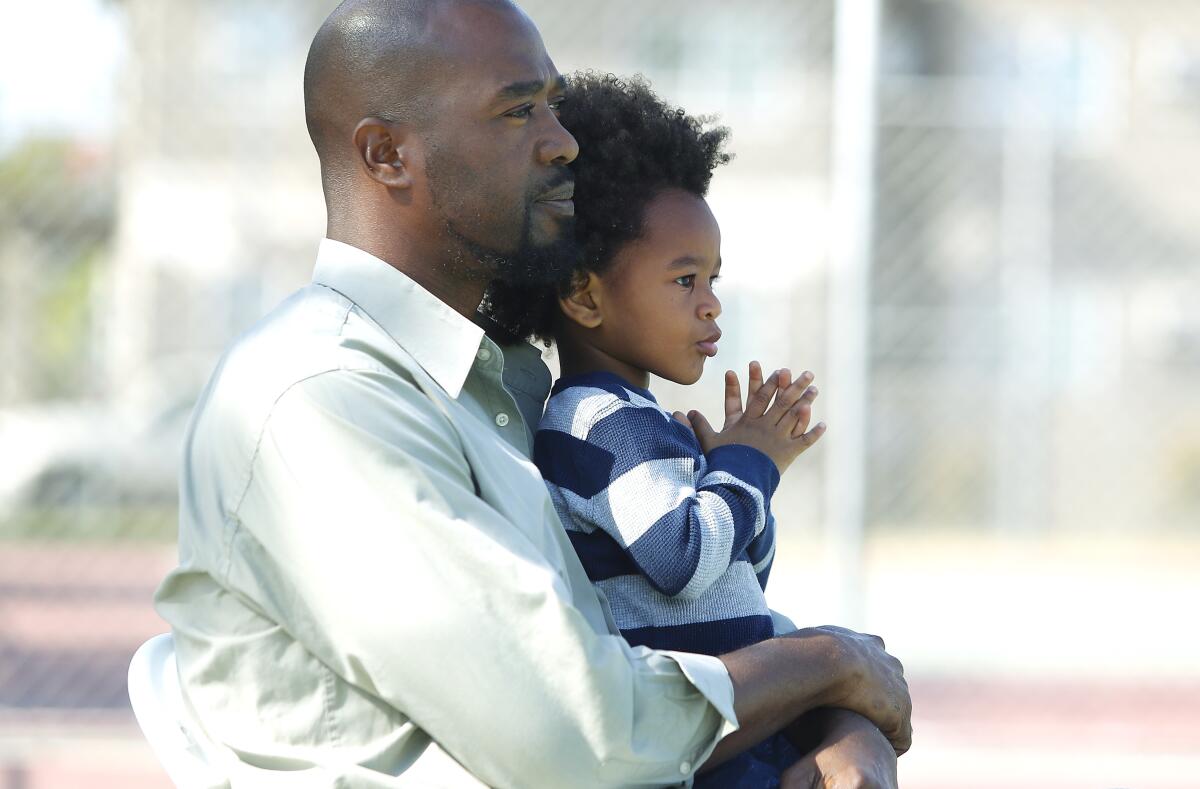
On a recent weekday in downtown Fresno, Hubbard met with five volunteers at the county’s Democratic Party headquarters. They took a seat around an oval table, booted up laptops and served themselves from a spread of Chinese food.
They pitched towns that canvassers should hit up next. A former speech and debate coach pointed out where Hubbard should emphasize words and pause for effect. Another organizer suggested brainstorming a “bumper sticker” talking point explaining succinctly why he should be put in office for such a short amount of time. (Congressional District 22, as currently constituted, will no longer exist after this year because redistricting has scattered its voters into surrounding districts.)
“You’re going to get your butt kicked in Tulare County,” Myra Coble, 65, told Hubbard, explaining it’s the nature of the district. “I don’t know how much you want to invest there.”
Joining Hubbard and the volunteers today was Ruben Zarate, the Fresno County Democratic Party chair, who said that “pockets of Democrats” would vote for Hubbard, but agreed that it was Conway’s territory. Conway, 71, served on the Tulare County Board of Supervisors and represented the area in the state Assembly.
The most important thing to remember: “A candidate needs to be out everywhere,” said Bobbitt, 66, spreading his arms and fingers. “If something’s going on in town, you just go there.”
California’s 2022 primary election ballot includes races for governor, attorney general, the Legislature and Congress, as well as local contests.
Holyoke says he sees a chance for Hubbard to prevail.
“If Hubbard is able to get traditional Democrats and young progressives to vote,” the political scientist said, “and Conway’s voters are like, ‘Eh, who cares about this?’ it’s possible for Hubbard to win.”
Unifying factions of the Democratic Party has been the challenge.
Hubbard lets out an exasperated sigh when he recounts the times he has tried to explain that young, Black or Latino votes aren’t automatically for Democrats. “Get that out of your head,” he tells older liberals in local Democratic clubs.
“They don’t get it,” Hubbard said. “It takes a little time for them to say, ‘These groups of people, just like anybody, have to be motivated to vote for you.’”
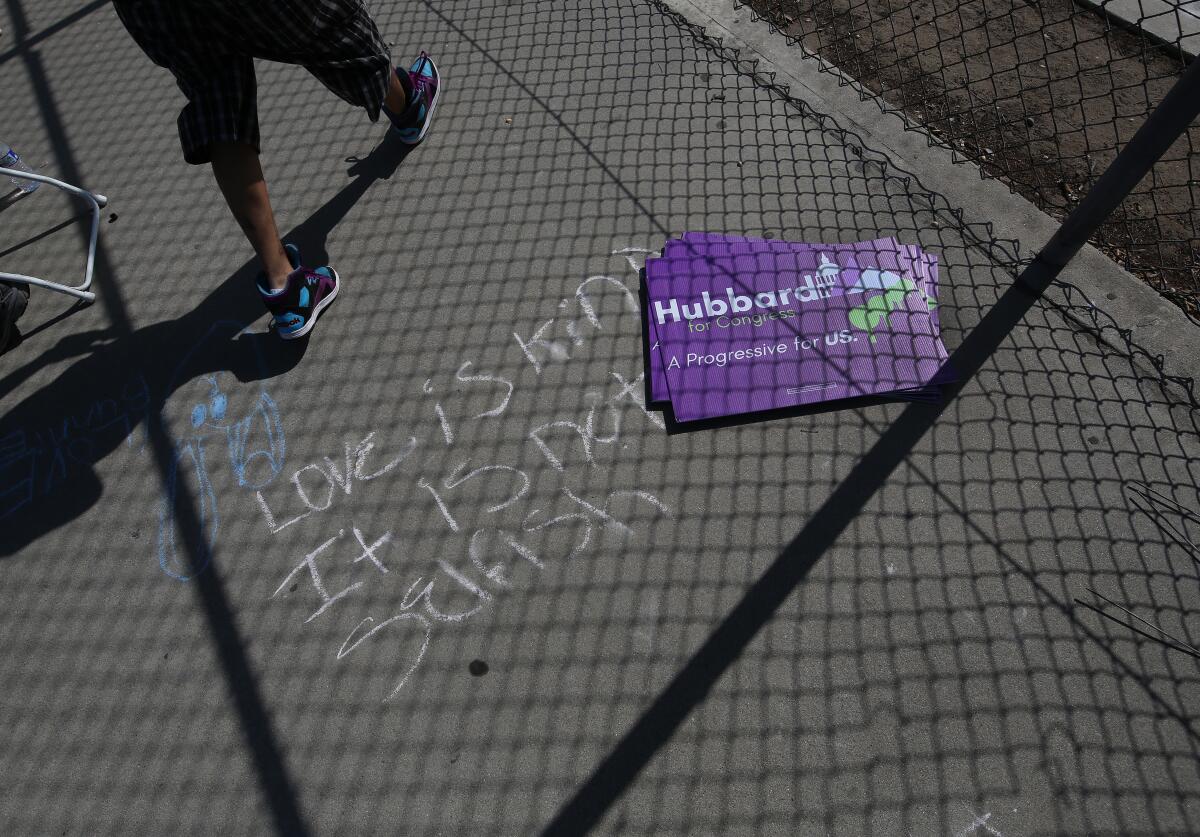
The California Democratic Party endorsed Hubbard in the spring special election. But he said that the “conversation I had with the party after … confirmed there is no cavalry that is coming.”
“I learned and I saw it early on [that state party officials] were busy fighting amongst themselves, that they couldn’t — they weren’t — going to help me,” the Fresno resident said.
In an email, Shery Yang, communications director for the state party, said they “look forward to a Democrat representing that region in the coming months.”
There are advantages to competing in a neglected race, said Nathan Gonzales, editor and publisher of the nonpartisan campaign newsletter Inside Elections.
“Hubbard is running in a district where even if he rallies all Democrats, that’s not enough,” he said. “Step 1 is getting all Democratic voters, and then still getting more. He’s in a race that hasn’t risen to a level of competitiveness that Republicans are waiting to pounce on him or what he’s doing.”
Hubbard is determined to not throw away his shot, betting on new voter registrations to carry him through.
“I think the stars are kind of aligned,” he told his team. “I’m running against an opponent who’s kind of sleeping on us, if you will, and coming out of retirement and wants to be a caretaker.”
Throughout this endeavor, Hubbard’s confidence hasn’t wavered. He’s the first to admit he has a healthy sense of self.
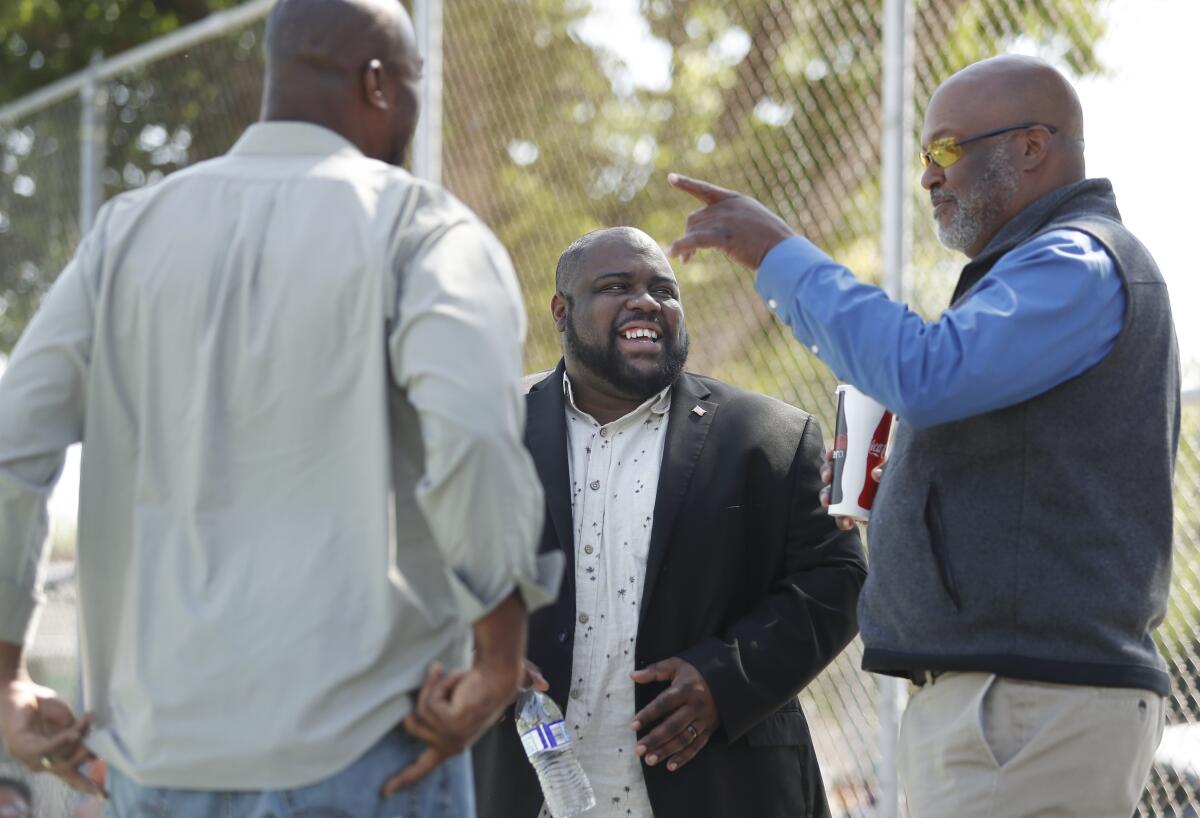
In his youth, the Bakersfield native remembers, he used to live in the same neighborhood as Republican House Minority Leader Kevin McCarthy. Although his mother was a registered Democrat, Hubbard identified as Republican and voted for Rudolph W. Giuliani in the 2008 presidential primary. In those days, he shared what he saw as Republicans’ strong focus on freedom, security and “opportunity for all.”
He voted for Barack Obama that fall and in 2012, but didn’t officially become a Democrat until years later when, he said, the state Department of Motor Vehicles prompted him to update his voter registration.
“As I’ve gotten older and as time has gone by, I don’t think my values have changed on those things,” he said. “I just don’t see the Republican Party as the brand for those things [anymore], especially after the nomination of a person like Donald Trump.”
The moment that truly brought Hubbard into the world of politics was in 2016 when Vermont Sen. Bernie Sanders entered the presidential race. For the first time, Hubbard decided to donate money, phone-bank and canvass for a candidate. He did it again for Sanders in 2020.
Then came Jan. 6, 2021, when the insurrection unfolded at the U.S. Capitol. Hubbard initially tried convincing Erin to run for Congress, but she shot that down. So he stepped up.
Hubbard had planned to compete against Nunes, and officially kicked off his campaign last June. When Nunes unexpectedly resigned this Jan. 1, Hubbard decided instead to run in the special election to serve out his term.
Hubbard doesn’t pretend to have it all figured out.
The day before the February deadline to file for the special election, he learned he needed to collect 40 signatures for his name to appear on the ballot. Hubbard was about to quit, until Erin mobilized and tapped friends to drive around and help them get signatures. In the end, they garnered 30 more than they needed.
The top two vote getters — regardless of party — in the June primary will move on to the November election.
Finances have been tough. Hubbard said he and Erin lent the campaign $10,000 of their savings to get it up and running. He raised $71,035 from April 2021 to March 2022, according to the Federal Election Commission. Conway, who jumped into the race in January, brought in $106,733 from January to March.
“At one point, we were like, ‘How are we going to do this?’ … because it’s just so expensive,” said Erin Hubbard, 29, a school nurse.
Lourin Hubbard hasn’t thought about his future in politics should he lose. For now, he remains undeterred.
At an event at a Fresno park in late April to honor victims of violence, Hubbard charmed the audience of 10, drawing cheers and applause as he stepped away from the lectern and walked closer to them.
“I’ll vote Black unless you give me a damn good excuse not to.... Especially if it looks like more hope for my son than this current system has,” said Terry Shelton, 45.
Jayanna Brown sat at the back behind a foldout table displaying stacks of campaign literature. Her cousin organized the commemoration and Brown showed up to help, but said she doesn’t dabble in politics much.
“Politicians always say they’re gonna do something, and they really never follow through with that,” said the 22-year-old. “Him just showing up to the event alone — I’ve seen he’s serious about the community.”
Others were open to the idea of casting a ballot for Hubbard, but wanted to vet him through one-on-one conversations.
Johnny Morales, 47, said that Hubbard’s pitch to protect area youth resonated with him, but that he would need to hear more before the candidate could count on his vote.
“We’ll see from there,” Morales said as he leaned back against his chair.
Campaigning has nearly consumed Hubbard’s daily life. One evening after his day job, he found himself driving 44 miles south to visit a Democratic Party chapter.
Inside the banquet hall of a Mexican cantina in Visalia, Hubbard asked about 20 people to help him flip a red chunk of the valley blue.
He launched into his spiel, explaining how labels within the Democratic Party — liberal, progressive, moderate, Blue Dog — shouldn’t matter in this special race to “uphold democracy.” Values, he said, should be the primary focus.
A man running as a progressive for a seat on the Visalia City Council challenged him. He wasn’t going to vote for just any Democrat, he explained — Democrats would have to actively court him to secure his vote.
Later, Hubbard said that encounter made him sigh: Here we ago again.
More to Read
Get the L.A. Times Politics newsletter
Deeply reported insights into legislation, politics and policy from Sacramento, Washington and beyond. In your inbox three times per week.
You may occasionally receive promotional content from the Los Angeles Times.

